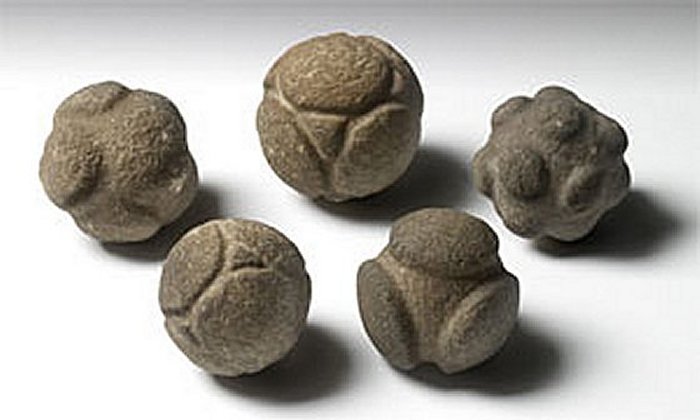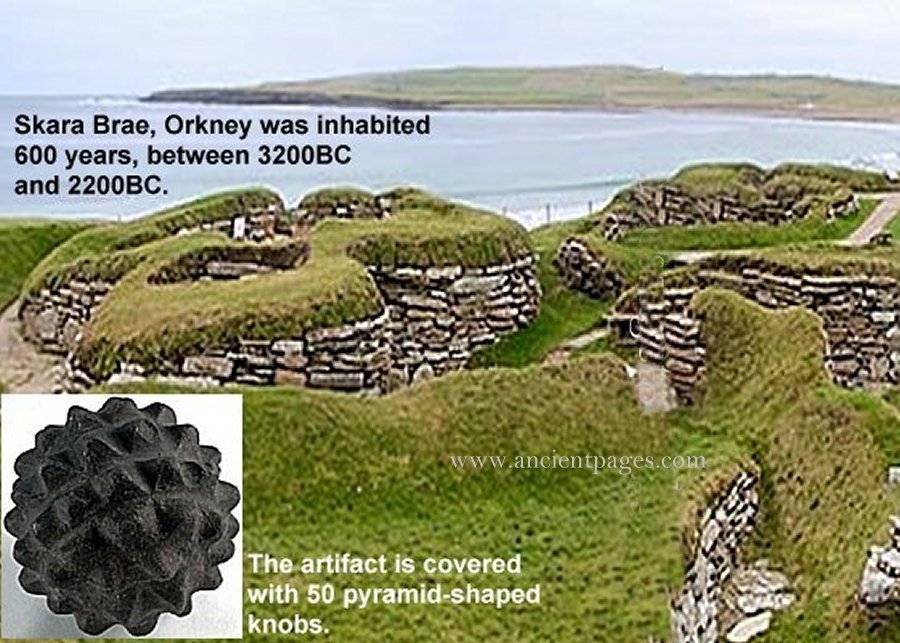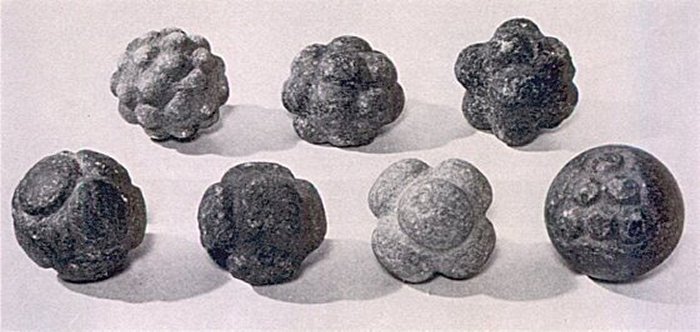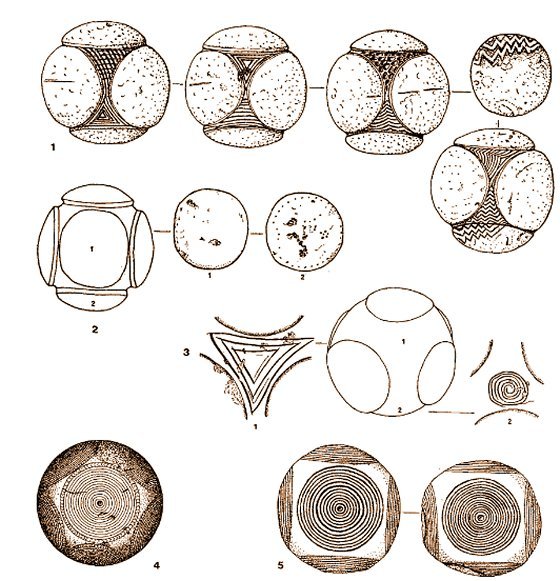Prehistoric Artifacts Out Of Nowhere -Their Origin And Purpose Are Totally Unknown
A. Sutherland - AncientPages.com - Many say they are hoaxes, but if that's true, why are they kept in museums as valuable objects?
These strange artifacts are symmetrical in design, very skillfully manufactured, and of an unknown origin. They appear to be relatively modern in form, but they are not.
They were found mainly in Scotland and a few of them in England and Ireland.
Archaeologists say these carved stone balls date to approximately 4000 BC and are made of various stones ranging from sandstone to granite.
Five carved stone balls from Scotland (AN1927.2727-2731). Credits: Ashmolean Museum
They are all of a relatively similar size and decorated with carved evenly-spaced patterns of circular bosses or knobs around the surface of the sphere. Their designs vary, but the majority are a series of six bosses, though the number of bosses can be from 3 to 160.
Particularly interesting are those unearthed at the Neolithic site at Skara Brae, one of Orkney's most famous ancient sites dating from the late Neolithic - inhabited for around 600 years, between 3200BC and 2200BC.
Three-hundred and seventy-five of these balls are with a diameter of about 70mm, and there are also 12 large balls of 90-114mm.
Some are carved with four or six knobs plain and decorated, seven knobs, eight or even 33 knobs; their decorations are also varied. Many have complex spiral patterns or cross-hatching on the faces.
 Left: This carved stone ball is one of several fancy carved stone objects found at Skara Brae on Orkney. Credits: National Museums Scotland; Right: Artifacts. credits: Aberdeen University Museum
Left: This carved stone ball is one of several fancy carved stone objects found at Skara Brae on Orkney. Credits: National Museums Scotland; Right: Artifacts. credits: Aberdeen University Museum
Credits: Aberdeen University Museum
Credits: Aberdeen University Museum
Credits: Aberdeen University Museum
However, despite their numbers, very little is known about carved stone balls, and their purpose is still unknown. They do not have any signs of use, and their specific function has never been determined. Very few of the balls were found damaged.
Did they have a symbolic meaning? Did they symbolize prestige and power? Could the artifacts be linked to a much earlier, undocumented time in the history of life on Earth?
One thing is sure - those who manufactured these artifacts must have possessed relatively advanced technology.
Written by – A. Sutherland AncientPages.com Staff Writer
Updated on August 1, 2022
Copyright © AncientPages.com All rights reserved. This material may not be published, broadcast, rewritten or redistributed in whole or part without the express written permission of AncientPages.com
Expand for referencesMore From Ancient Pages
-
 Untold Story Of Mexico’s Ancient Giant Indians – Secret Knowledge Of The Aztecs Revealed – Part 1
Ancient Mysteries | Sep 21, 2019
Untold Story Of Mexico’s Ancient Giant Indians – Secret Knowledge Of The Aztecs Revealed – Part 1
Ancient Mysteries | Sep 21, 2019 -
 Earliest Evidence Of Humans Using Fire To Shape The Landscape Of Tasmania
Archaeology | Nov 19, 2024
Earliest Evidence Of Humans Using Fire To Shape The Landscape Of Tasmania
Archaeology | Nov 19, 2024 -
 The Untold Story Of The Great Sphinx – Puzzling Discoveries – Part 2
Ancient Mysteries | Aug 13, 2019
The Untold Story Of The Great Sphinx – Puzzling Discoveries – Part 2
Ancient Mysteries | Aug 13, 2019 -
 Mysterious Nine Worlds Of Yggdrasil – The Sacred Tree Of Life In Norse Mythology
Featured Stories | Mar 8, 2017
Mysterious Nine Worlds Of Yggdrasil – The Sacred Tree Of Life In Norse Mythology
Featured Stories | Mar 8, 2017 -
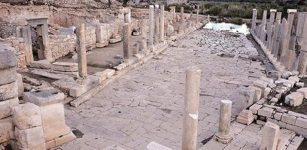 Patara: One Of The Six Big Cities Of Lycian League Is Celebrated In 2020
Archaeology | Jan 15, 2020
Patara: One Of The Six Big Cities Of Lycian League Is Celebrated In 2020
Archaeology | Jan 15, 2020 -
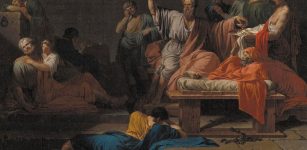 Socrates: Great Philosopher And Brave Man Who Still Inspires Many People
Featured Stories | Jul 21, 2016
Socrates: Great Philosopher And Brave Man Who Still Inspires Many People
Featured Stories | Jul 21, 2016 -
 Another Franklin Expedition Crew Member Identified
Archaeology | Sep 26, 2024
Another Franklin Expedition Crew Member Identified
Archaeology | Sep 26, 2024 -
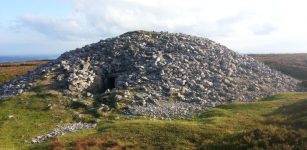 Ancient Irish Practiced Special Burial Rituals Such As Dismemberment Of Bodies
Archaeology | Sep 18, 2017
Ancient Irish Practiced Special Burial Rituals Such As Dismemberment Of Bodies
Archaeology | Sep 18, 2017 -
 Powerful Ancient Maya Kaanu’l Dynasty And Their Intriguing Reliefs Of Mythical Animals And Celestial Ancestors In Quintana Roo, Mexico
Archaeology | Oct 23, 2024
Powerful Ancient Maya Kaanu’l Dynasty And Their Intriguing Reliefs Of Mythical Animals And Celestial Ancestors In Quintana Roo, Mexico
Archaeology | Oct 23, 2024 -
 History Of Bread: Basic Food Of Man In Ancient And Contemporary Cultures Around The World
Ancient Traditions And Customs | Jun 18, 2023
History Of Bread: Basic Food Of Man In Ancient And Contemporary Cultures Around The World
Ancient Traditions And Customs | Jun 18, 2023 -
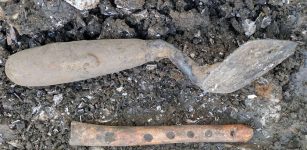 Fascinating 3,000-Year-Old Artifacts Found At Herne Bay, Kent, UK
Archaeology | Jun 24, 2022
Fascinating 3,000-Year-Old Artifacts Found At Herne Bay, Kent, UK
Archaeology | Jun 24, 2022 -
 Ruins Of The Ancient City Of Palmyra Documented – What Remains After The Fall Of The Assad Regime
Archaeology | Feb 14, 2025
Ruins Of The Ancient City Of Palmyra Documented – What Remains After The Fall Of The Assad Regime
Archaeology | Feb 14, 2025 -
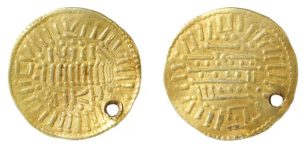 Vikings May Have Made Imitation Gold Dinar Found In Morston, Norfolk – Expert Says
Archaeology | Apr 5, 2023
Vikings May Have Made Imitation Gold Dinar Found In Morston, Norfolk – Expert Says
Archaeology | Apr 5, 2023 -
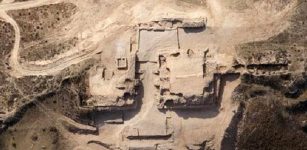 First Chinese Murals Unearthed In Shimao Ruins Are Over 4,000 Years Old
Archaeology | Aug 22, 2015
First Chinese Murals Unearthed In Shimao Ruins Are Over 4,000 Years Old
Archaeology | Aug 22, 2015 -
 Norse Frost Giant Vafthrudnir Who Was A Mastermind Of Riddles
Featured Stories | Mar 24, 2025
Norse Frost Giant Vafthrudnir Who Was A Mastermind Of Riddles
Featured Stories | Mar 24, 2025 -
 Mysterious Books With Dangerous Secret Knowledge Deliberately Hidden From Public View
Featured Stories | Jan 8, 2024
Mysterious Books With Dangerous Secret Knowledge Deliberately Hidden From Public View
Featured Stories | Jan 8, 2024 -
 Hawass Says Claims That The Ancient Egyptian Civilization Was Black Are Lies
Civilizations | Jun 21, 2024
Hawass Says Claims That The Ancient Egyptian Civilization Was Black Are Lies
Civilizations | Jun 21, 2024 -
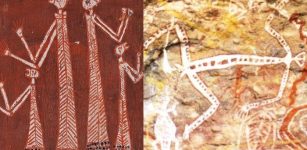 Immortal Mimi Spirits In Beliefs Of Aborigines Of Arnhem Land
Featured Stories | Mar 26, 2020
Immortal Mimi Spirits In Beliefs Of Aborigines Of Arnhem Land
Featured Stories | Mar 26, 2020 -
 Did Human Middle Ear Evolve From Fish Gills? – Chinese Fossils Reveal
Archaeology | Jun 17, 2022
Did Human Middle Ear Evolve From Fish Gills? – Chinese Fossils Reveal
Archaeology | Jun 17, 2022 -
 Stunning Ancient Roman Artifacts And Three Shipwrecks Discovered Underwater Off The Coast Off Alexandria, Egypt
Archaeology | Nov 26, 2017
Stunning Ancient Roman Artifacts And Three Shipwrecks Discovered Underwater Off The Coast Off Alexandria, Egypt
Archaeology | Nov 26, 2017


